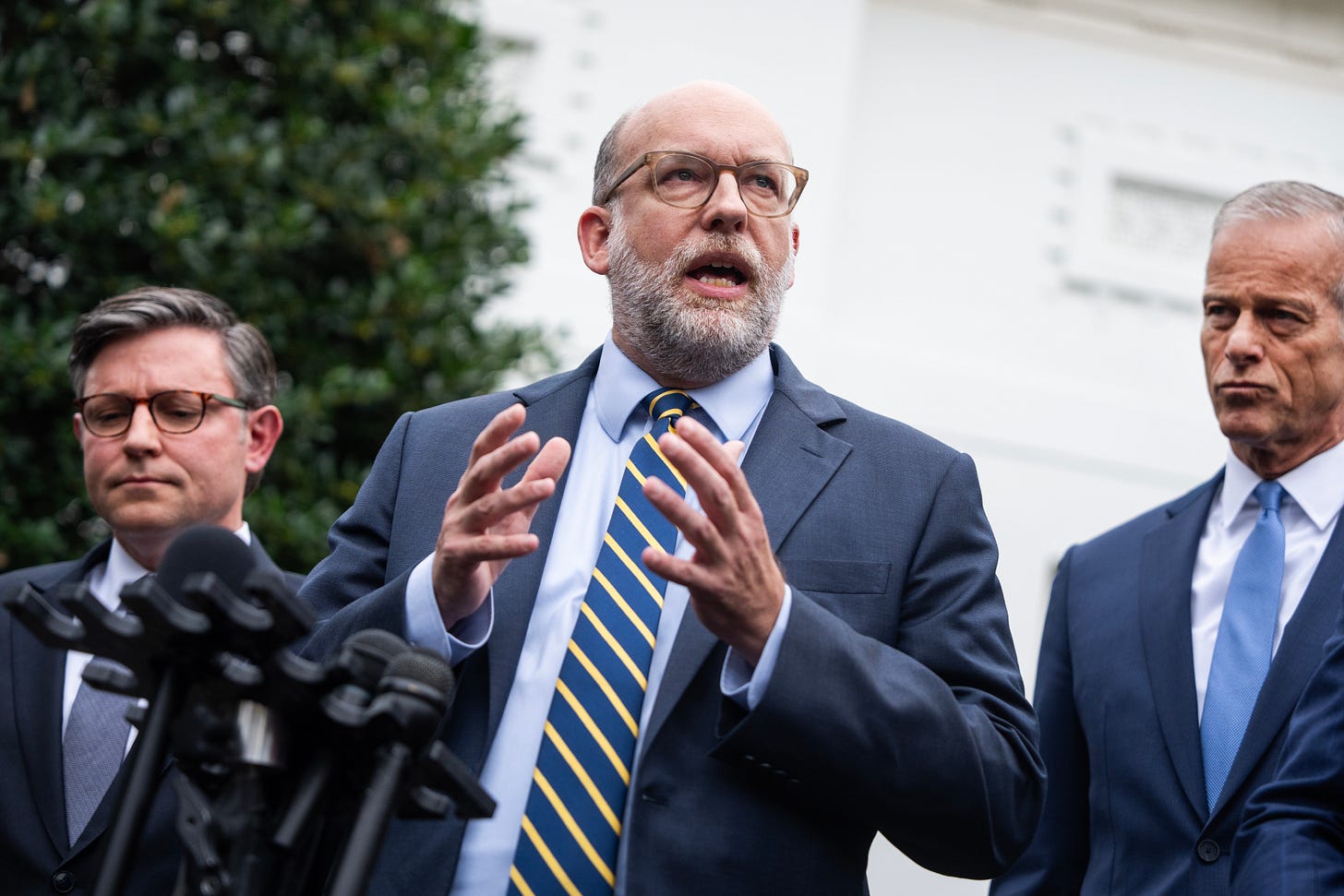What Wednesday Taught Us About Trump’s Attitude to the Federal Bureaucracy
As if we needed any more reminders.

This article is part of an ongoing project by American Purpose at Persuasion on “The ‘Deep State’ and Its Discontents.” The series aims to analyze the modern administrative state and critique the political right’s radical attempts to dismantle it.
To receive future installments into your inbox—plus more great pieces by American Purpose and Francis Fukuyama’s blog—simply click on “Email preferences” below and make sure you toggle on the buttons for “American Purpose” and “Frankly Fukuyama.”
Can the declaration of Armageddon, made in my most recent article, ever have a postscript? The one rule about the Trump assault on the bureaucracy is that no battle is ever final. And three big stories—make that four—underline the point.
The first was a ruling on Wednesday by Senior U.S. District Judge Susan Illston in San Francisco that blocked the layoffs launched by the Office of Management and Budget (OMB). The judge concluded that the administration has “taken advantage of the lapse in government spending, in government functioning, to assume that all bets are off, that the laws don’t apply to them anymore.” Moreover, “They’re overturning the agency mandates that Congress has put in place. They can’t do that.” Statements by President Trump, Vice President Vance, and OMB Director Russell Vought all pointed to a political motivation for the reductions in force (RIFs)—as the layoffs are known—instead of reasons rooted in law.
Judge Illston also pressed the government’s attorney for more details about the administration’s justification for the RIFs. The attorney said she wasn’t prepared to answer the question. This didn’t please the judge, who was searching for some kind of argument so she could understand the administration’s case.
So the judge put a halt to the firings, at least for employees represented by AFGE, the union that brought the case.
The second story was evidence that the administration did not seem deterred by the criticism it was getting. OMB Director Vought said earlier in the day that the initial firing of 4,000 employees was just a “snapshot” of what was to come. The RIFs would keep “rolling throughout the shutdown,” he said. “I think we’ll probably end up being north of 10,000.” When more cases bubble up, the clear political motivation of the decisions won’t make it any easier for the government’s attorneys.
The third story came when the White House issued a new executive order that expanded on a previous hiring plan for the federal government. It required every agency head to create a “Strategic Hiring Committee” to “approve the creation or filling, as applicable, of each vacancy within their agency.” The committee, moreover, was required to “ensure that agency hiring is consistent with the national interest, agency needs, and the priorities of my Administration.” The committee is required to include the deputy secretary or other number two individuals as well as the chief of staff to the agency head.
That means the very top officials in every agency have to approve the hiring of every single new government employee. At the Department of Housing and Urban Development, for example, it means about a thousand new hires a year. In the Department of Defense, the number ranges between 30,000 and 40,000. That’s a lot of paperwork for already-busy top officials to review.
Fine print in the executive order, though, could make the job easier: focusing on individuals who demonstrate a commitment to “the priorities of my Administration.” That’s a license for patronage and an invitation for administration officials to tapdance around the merit-based requirements in the administration’s earlier guidance.
None of this, however, applies to officials hired for political roles, including Schedule C confidential assistant positions and employees in the new Schedule G, created without a limit to perform any political task required. So it’s even more tempting to move fast in hiring those officials to further increase political control over federal agencies.
The Trump administration is playing a fast-moving game that the courts are struggling to keep up with and that Congress is watching from miles away.
Make no mistake: Judge Illston is precisely right that the administration is determined to overturn the law wherever and whenever it chooses. It’s going to continue to work all the angles on this plan, especially while the shutdown continues. And it’s going to be tough for anyone to catch up and challenge it.
In fact, the biggest political mistake the administration made in this phase of its campaign is that top officials—Trump, Vance, and Vought—were too clumsy in their deeds by being too clumsy in declaring their purpose. By declaring the firings “should be Democrat-oriented,” they made it easy for federal judges to strike the actions down.
The administration might learn to play the game more cleverly and combine a higher level of skill with the fast pace of its action.
And that’s just what happened in the fourth story, with a memo authorizing Secretary of Defense Pete Hegseth to transfer any available cash to pay members of the armed forces. This gave the Democrats a tough choice: balk at what clearly was an effort to grab Congress’s power of the purse and risk the ire of everyone who supports paying members of the military (which is almost everyone); or concede the point on political grounds and surrender one more mile in the balance-of-powers battle.
This was just one day in the life of the republic, but it’s a scary omen. This Armageddon can indeed have a postscript. In fact, not one but many. Watch this space.
Donald F. Kettl is Professor Emeritus and Former Dean of the University of Maryland School of Public Policy. He is the author, with William D. Eggers, of Bridgebuilders: How Government Can Transcend Boundaries to Solve Big Problems.
Follow Persuasion on Twitter, LinkedIn, and YouTube to keep up with our latest articles, podcasts, and events, as well as updates from excellent writers across our network.
And, to receive pieces like this in your inbox and support our work, subscribe below:




